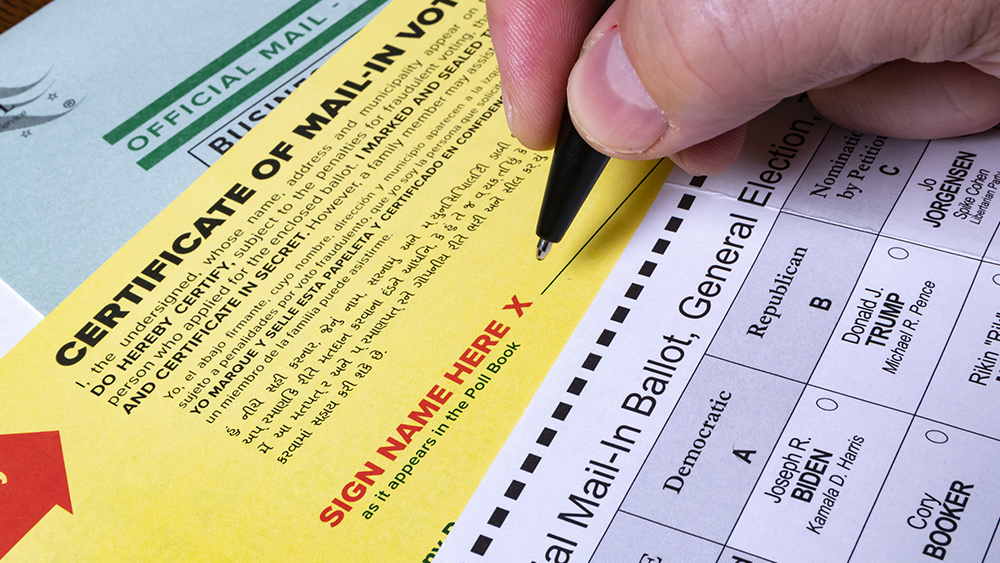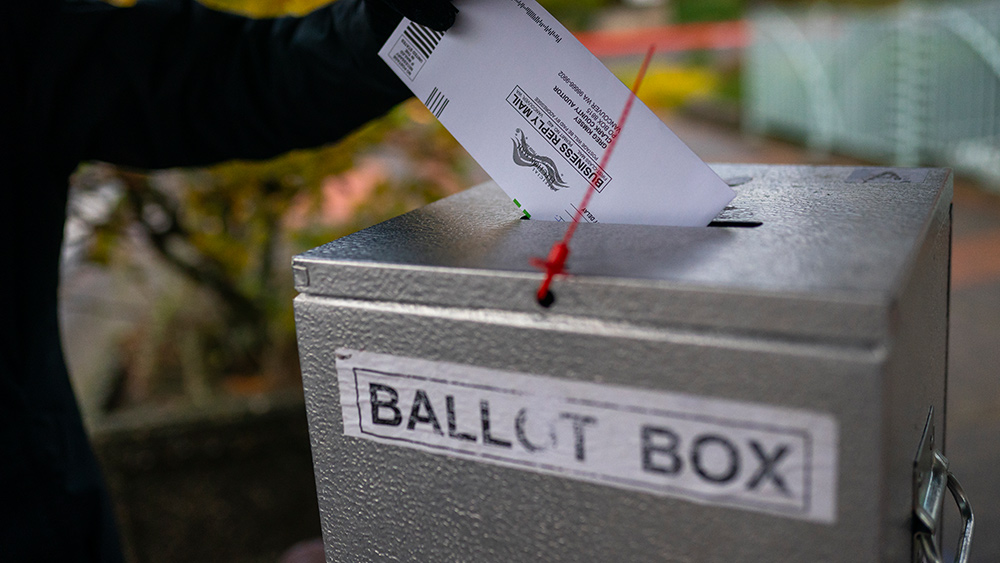
Whenever discussions about patriotism and "standing our ground" as American citizens come up, the conversation typically veers towards the importance of firearms and the Second Amendment for deterring tyranny. But according to "Truth Patriot" Jerry Day with Matrix News Network, there's actually a better way to fight tyranny.
"Smart" tyrants, he says, don't have to resort to guns when the easier option is paper. Most people today have been conditioned to sign their lives away, so to speak, whether it's with automobile registration forms, proof of insurance, tax forms, or various other paper weapons of tyranny that are constantly being waged against what would otherwise be a free people.
Watch at Brighteon.com as Day explains how the use of paper by corporations and other institutions as a weapon is backed by guns – in other words, guns are the enforcement tool through which the masses are kept as paper slaves to a tyrannical government.
"Whether we realize it or not, we only submit to this (paper) because we are being threatened by this (guns)," Day explains with visualization. "What if we knew they did not have this (guns)? Would we do this (paper)? I wouldn't. When we do this (paper), we are really reacting to this (gun): tyranny."
Affidavits are We the People's weapon against institutional tyranny
The good news is that paper weapons are a two-way street. Just as governments and corporations can use paper as a weapon against us, we, too, can use paper as a weapon against them. All that's required of us it to learn how to properly use paper as a weapon against our tyrants.
"Just as a gun can be pointed in two directions, paper can be used by all parties," says Day. "How can you use the power of paper? One way is with something called an affidavit. An affidavit seems simple and harmless: It's simply a sworn statement of fact signed by a notary. But a lot more people have been robbed with this (paper) than with this (gun)."
So how does an affidavit work? By notifying a given entity of the terms that We the People have set for ourselves, an affidavit forces tyrants to either rebut or accept our terms, rather than us having to rebut or accept theirs.
"A properly executed affidavit is law until it is rebutted by another affidavit," Day explains. "Suppose you send your mortgage lender an affidavit that says you just discovered that the loan documents they asked you to sign have misrepresentations, lack of disclosure, or fraud. If you are wrong, you may go to jail for perjury. If you're right, you may get the deed to your house, free and clear. An affidavit is a powerful thing."
The man who properly executes affidavits is in charge of his own civil destiny
In Day's view, an affidavit allows everyday people to make the rules for themselves, rather than have to be beholden to the rules of others that would seem to be more powerful than they are. It can work with government agencies, credit card companies, mortgage lenders, and many others, he says.
"Your announcements and demands are just as valid as theirs," Day emphasizes. "If your notice is in the form of an affidavit, no judge, court, or officer may deny your claim, and the credit card company may not impose different terms unless you agree to them, either by response or by silence."
Day suggests never signing anything that you don't author yourself on your own terms. He also says that institutions often don't read, let alone respond, to legitimate affidavits, which means We the People truly have the power if we're willing to take it.
"Large institutions are very good at sending notices, but they are not very good at reading and responding to notices they receive," he says.
"That is not your problem. Institutional size and bureaucratic incompetence is not an excuse for anything. Send them them notice, and hold them to the terms contained in that notice. If they refuse your terms, change your terms, or walk away from the relationship. Just make sure that you always play by your rules, and not theirs."
"Just as tyranny comes in many forms, revolutions come in many forms. We can have a nice, non-violent revolution, we can even do it all through the mail, if we borrow a trick that institutions use against us. If this (paper) is used more effectively, then nobody will have to use this (gun). But don't do it if you don't know what you're doing – paper can be dangerous.
Be sure to watch the full segment on affidavits at Brighteon.com.
Sources for this article include:
Please contact us for more information.





















